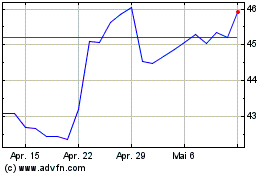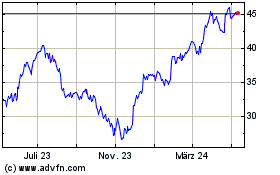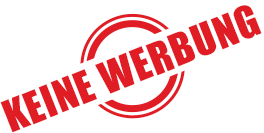GM's Barra Signals Concern About Tax Proposals Affecting Imports
28 Februar 2017 - 11:22PM
Dow Jones News
By William Mauldin
WASHINGTON -- General Motors Co. Chief Executive Mary Barra said
Tuesday that tax proposals affecting imports could be "problematic"
for the auto maker.
So far, there is little clarity on what Congress will do. House
Republicans have proposed a so-called border adjustment -- taxing
imports but not exports -- as part of a plan to cut the corporate
tax rate. President Donald Trump hasn't backed or rejected that
plan; he has talked about a "big border tax" targeted at companies
that move jobs outside the U.S. and then ship products back in.
Either plan could be damaging to GM.
Corporate executives across industries have been eyeing the tax
debate nervously. Mr. Trump may discuss a tax overhaul later
Tuesday during his first formal address to Congress.
Tax proposals, "if not done very thoughtfully, could be
problematic," Ms. Barra said at the Economic Club of Washington.
"It would take a period of time to make adjustments to that."
Mr. Trump discussed the tax plan with Ms. Barra and other
executives earlier in February at a meeting of a business-advisory
committee. "We had a very productive meeting," Ms. Barra said
Tuesday.
"We support tax reform, but it's got to be done in a way that
doesn't have unintended consequences," Ms. Barra said.
GM and other global manufacturers based in the U.S. are paying
careful attention as Mr. Trump and lawmakers discuss a variety of
policies that could reshape their business models. Mr. Trump has
warned about broad tariffs against Mexico and other trading
partners, special taxes that would target companies moving
production offshore and an overhaul of the North American Free
Trade Agreement, or Nafta.
Analysts say a border-adjusted tax could hurt GM more than other
Detroit car makers because it brings in more products from Mexico,
including the import of nearly 400,000 full-size pickups in 2016.
The trucks account for the bulk of GM's global profits. Ford Motor
Co. imports small cars from Mexico but makes its lucrative F-series
pickups in the U.S.
GM also relies on parts made by its suppliers south of the
border. Trump advisers have said they may change Nafta. rules that
govern how much of a vehicle must be made in North American to
qualify for duty-free trade across the borders with Mexico and
Canada.
A border tax could change the calculus companies use when
determining where to source components from around the world.
Before any major changes are implemented, executives are looking to
explain their reliance on international supply chains to U.S.
officials and lawmakers and request a delay.
Such policy shifts can affect where a company assembles cars or
other products and even what domestic and international businesses
are worth owning.
GM has entered talks to sell its European business Opel to
Peugeot, part of a process of shedding money-losing operations
abroad. The French government holds a 14% stake in Peugeot,
formally known as Groupe PSA SA.
Ms. Barra said Tuesday the companies are "exploring other
opportunities to see if we can work together."
"We've done a lot to improve the business, but we're exploring
opportunities," she said of Opel.
--Mike Colias and Richard Rubin contributed to this article.
Write to William Mauldin at william.mauldin@wsj.com
(END) Dow Jones Newswires
February 28, 2017 17:07 ET (22:07 GMT)
Copyright (c) 2017 Dow Jones & Company, Inc.
General Motors (NYSE:GM)
Historical Stock Chart
Von Mär 2025 bis Mär 2025

General Motors (NYSE:GM)
Historical Stock Chart
Von Mär 2024 bis Mär 2025


